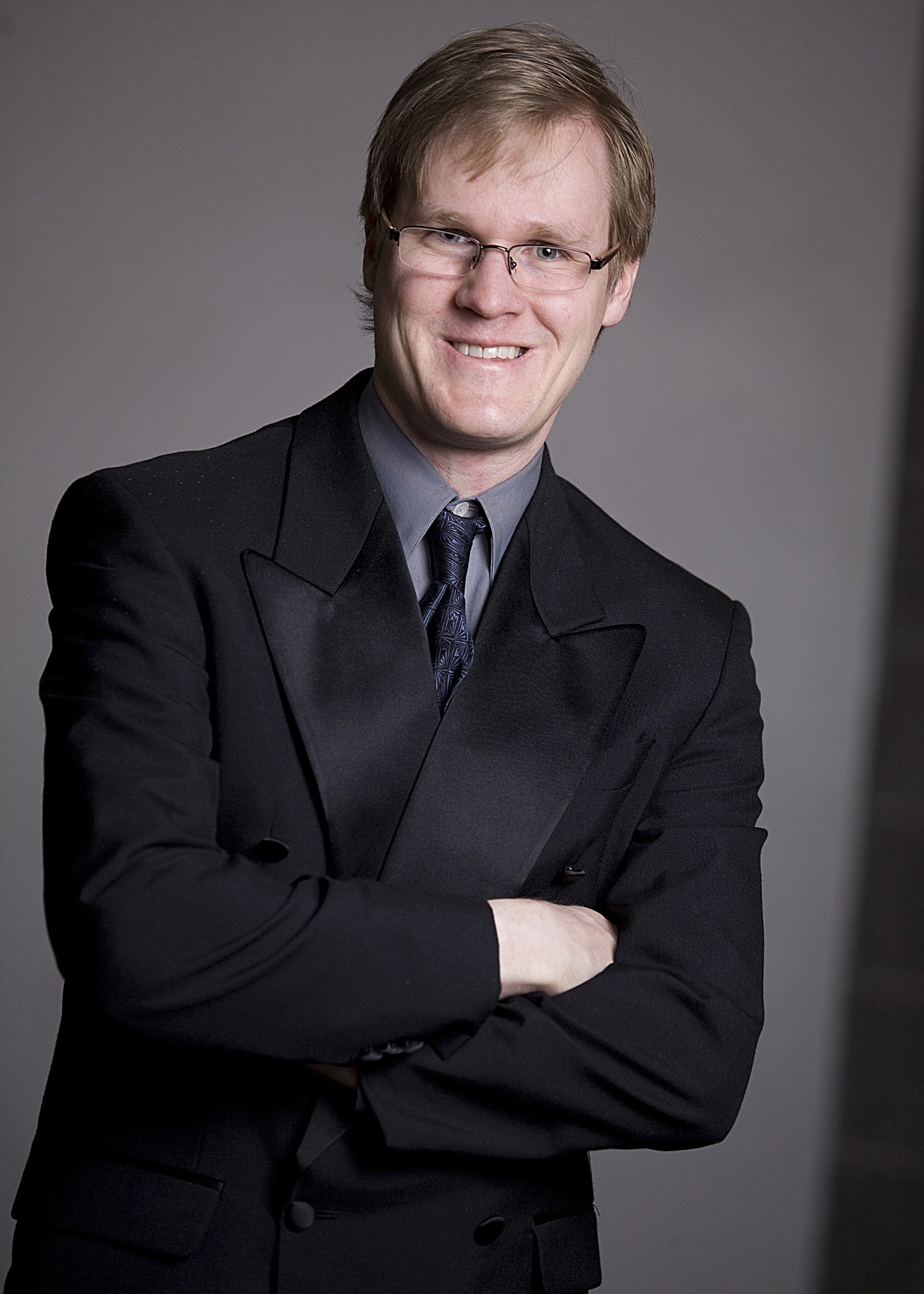Acclaimed local musician Ruston Vuori knew early on that his love for piano would essentially evolve into a life-long career.
At just 31, he’s studied under the guidance of Dr. Stéphane Lemelin, Dr. Jacques Després and Red Deer’s Dr. Ted Isenor.
He earned his master of music and bachelor of music degrees with distinction from the University of Alberta, as well as a Performer’s ARCT diploma from the Royal Conservatory of Music. He also studied piano and chamber music performance at the University of Ottawa.
Currently, he’s sharing his passion for music with students as an instructor of piano, music theory and aural skills at Red Deer College – a role he especially feels strongly about.
Audiences will be able to take in his musical mastery during the Ruston Vuori Piano Recital on Jan. 27 in Studio A. Performance time is 7:30 p.m. There is no charge to attend but a donation to the local food bank is encouraged.
Vuori, who was born and raised in Red Deer, will be exploring the ‘theme and variations’ form for solo piano through works of Handel, Mozart, Brahms, and Fauré.
He remembers as a child playing on an organ in the basement of his family’s home – and that’s pretty much where it all began. He soon began taking piano lessons with Shirley Dauncey and there was really no looking back.
“She was a really good person for me to have as a first instructor. First of all, she focused first and foremost on a love for music. I think she helped instill and nurture that love that I have for the instrument.”
Ultimately, unlike many kids who try it at their parents’ insistence and drop out after a couple years, Vuori’s interest in building his skill never wavered. “I started serious piano study around the age of 12,” he explains. “I really liked it right from the start. I liked the challenge.”
These days, he’s thoroughly enjoying his teaching role at RDC.
“They’re all there because they are passionate about music,” he explains of his students. “I really enjoy, first of all, the day-to-day dealings with the students and helping them learn, because they are excited about learning.
“You have something to pass onto them, and they are excited to hear it.”
Many students also begin their studies without a background in classical music.
“I like sharing my passion for classical music with them, and an awful lot of them really take to it after they are exposed to it. A lot of them develop a real love for it, so that’s very rewarding for me – I love to see them learn.”
Meanwhile, concert highlights include Handel’s Air with Variations from Suite in E Major, Piano Sonata in A Major by Mozart, Thème et Variations by Fauré and two selections by Brahms – Variations on an Original Theme in D Major and Variations and Fugue on a Theme by Handel.
Vuori explains how when planning a concert, he usually selects one of the major works he’ll be performing and them builds a theme around it.
This year, the theme is ‘Themes and Variations’ with the foundational piece being Brahms’ Variations and Fugue on a Theme by Handel.
“It’s one of those stalwart, huge masterpieces of the Romantic era. It’s a wonderful piece of music with these vast changes in emotion, he covers just about every emotion you can imagine through the course of the piece. And then it ends with this massive fugue, which is think is one of the most exciting endings in solo piano music ever written.”
As for Variations on an Original Theme in D Major, Vuori describes it as a much more subtle piece. “There are some moments of great passion in it, but the vast majority of it is really quite quiet and reflective. I think they are very beautiful, and if you listen to the two pieces you would scarcely be able to tell they were written by the same composer, and especially that they were written seven years apart.”
Vuori is opening the concert with Handel’s Air with Variations from Suite in E Major.
Overall, pieces were purposely chosen to represent different eras in music as well. The Baroque era is represented by the Handel piece, and the classical period is reflected with Mozart’s Sonata.
“The two Brahms works are from the Romantic era and the Faure piece is from the late Romantic era,” he explains. “So I picked a variety of works to show how the ‘variation’ form evolved, and how much more complex the variations got as time went on.”
He still feels a touch of nervous energy when he performs, but counts that as a positive and even helpful element to a concert.
“You can use that energy to your advantage to create an exciting performance.”
After so many years of honing his tremendous skills, Vuori feels that much more enthusiastic about piano – teaching and playing.
“It’s so nice to be able to spend your life working on something you are very passionate about, and that you really enjoy. I enjoy teaching a great deal, and there’s nothing quite like playing the piano for yourself, too.
“You have to develop a certain technical command of the instrument but then you get to the point where you stop thinking so much about the technique and start enjoying the sounds you make and experimenting with those sounds.
“I love to take a single motif and count the many different ways that I can play it, and see if I can get that sound that I have conceived in my head to come out of the instrument.”
And there’s nothing quite like the depth and richness of classical music to focus on.
“When you think about classical music, it’s not as though you are just interested in one thing,” he says. “You’re talking about more than 1,000 years of music history.”
editor@reddeerexpress.com



